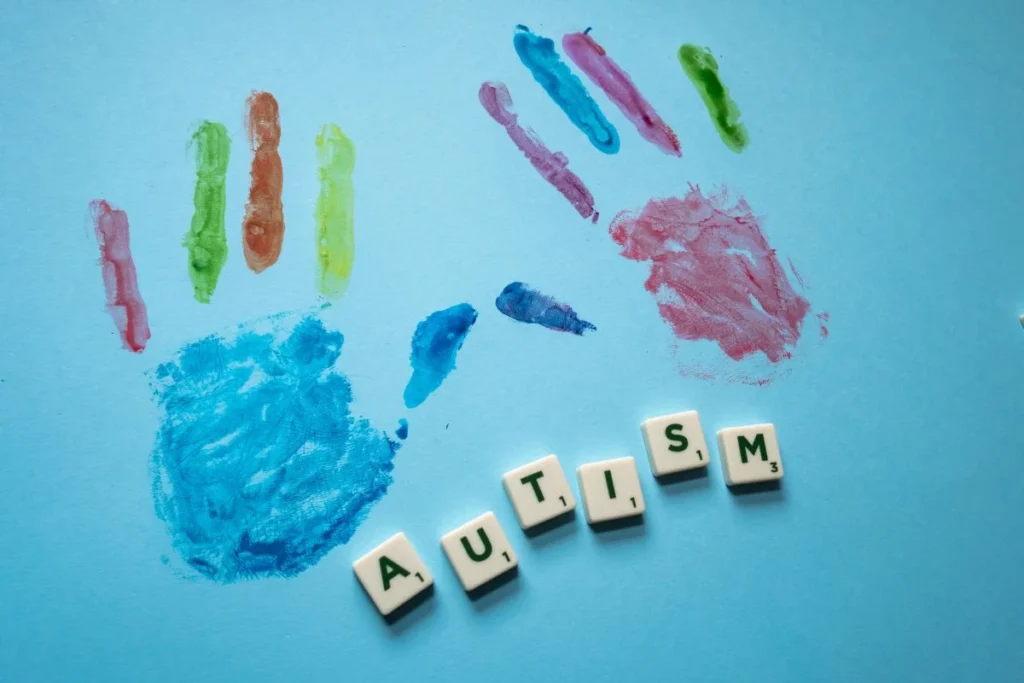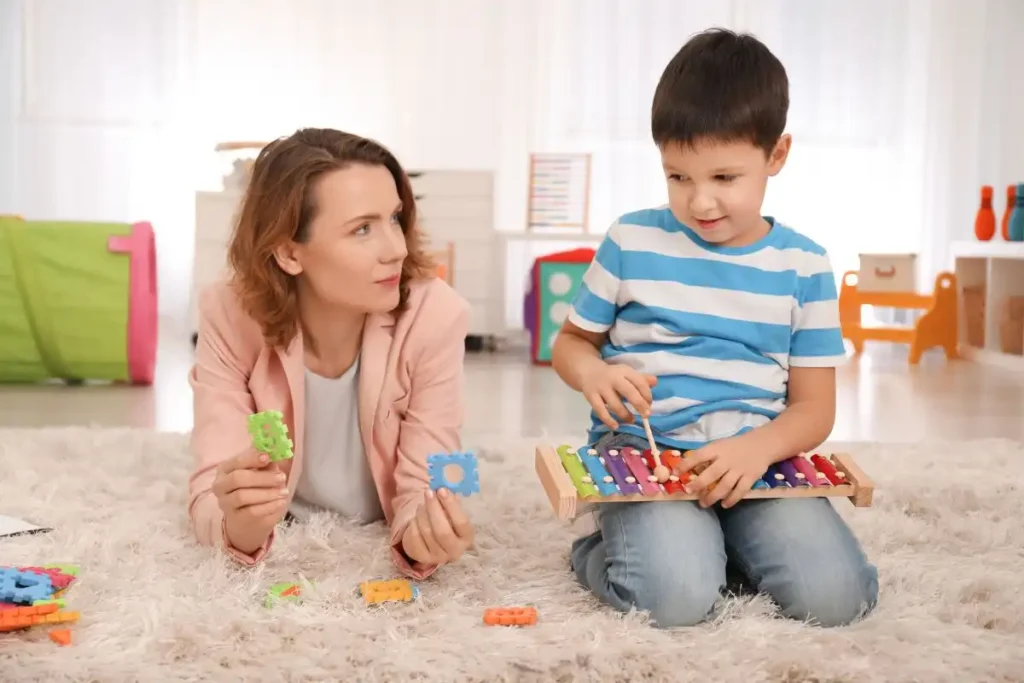Autism Spectrum Disorder (ASD) is a developmental disorder that affects communication, social interaction, and behavior. Early detection and intervention can help children with ASD develop and reach their full potential. Here are some early signs of autism in children:
Social Interaction Difficulties
Children with ASD may have difficulty interacting with others. They may avoid eye contact, not respond to their name, and have trouble understanding social cues. For example, they may not understand when someone is sad or happy. They may also prefer to play alone and not engage in pretend play.
Communication Challenges
Children with ASD may have difficulty with communication. They may have delayed speech or not speak at all. They may also have trouble understanding language, taking turns in conversations, and expressing their needs and wants. Some children with ASD may use repetitive language, like repeating phrases from a TV show or movie.
Repetitive Behaviors and Restricted Interests
Children with ASD may engage in repetitive behaviors, like flapping their hands or spinning in circles. They may also have restricted interests, like lining up toys or focusing on one topic of interest. They may have difficulty adapting to changes in routine or environment.
It is important to note that not all children with ASD will display all of these signs, and some children without ASD may display some of these signs. If you are concerned about your child’s development, talk to your pediatrician or a specialist who can evaluate your child and provide appropriate support and interventions. Early detection and intervention can make a significant difference in a child’s life.
Developmental Milestones and Autism
Autism Spectrum Disorder (ASD) is a neurodevelopmental disorder that affects communication, social interaction, and behavior. Early diagnosis and intervention can greatly improve outcomes for children with ASD. One way to identify potential signs of autism is by monitoring a child’s developmental milestones.
Comparison to Typical Developmental Milestones
Children with ASD may show differences in their developmental milestones compared to typically developing children. The Centers for Disease Control and Prevention (CDC) provides a list of developmental milestones for children from 2 months to 5 years old. Children with ASD may have delays in reaching these milestones, particularly in social and language skills. For example, a child with ASD may not respond to their name, have difficulty with eye contact, or have delayed language development.
It is important to note that not all children with ASD will have delays in all areas of development. Some children may have advanced skills in certain areas, such as math or music. However, if a child is consistently not meeting developmental milestones, it may be a sign of ASD and should be evaluated by a healthcare professional.
Monitoring Milestone Progress
Parents and caregivers can monitor a child’s developmental milestones by regularly checking their progress and consulting with a healthcare professional if there are concerns. The American Academy of Pediatrics recommends regular developmental screenings at 9, 18, and 30 months, as well as at any time there are concerns.
Tracking developmental milestones can be done through a variety of methods, such as using milestone checklists or apps, or by simply observing a child’s behavior and progress. It is important to remember that every child develops at their own pace, so not meeting a milestone at a specific age does not necessarily mean a child has ASD. However, if there are consistent delays in multiple areas of development, it is important to seek evaluation and intervention.
By monitoring developmental milestones, parents and caregivers can play an important role in identifying potential signs of ASD and seeking early intervention for their child.
Seeking Professional Guidance
If a parent or caregiver suspects that their child may have autism, seeking professional guidance is essential. While parents may be able to identify some early signs of autism, only trained professionals can diagnose the disorder. Here are some important things to know about seeking professional guidance for autism.
When to Consult a Professional
It is important to consult a professional if a child displays any of the early signs of autism. These signs include delayed speech development, lack of eye contact, repetitive behaviors, and not responding to their name. If a parent or caregiver is concerned that their child may have autism, they should consult a professional as soon as possible. Early intervention is key in treating autism, and the earlier a child receives a diagnosis, the better their chances are for improvement.
Types of Professionals Involved in Diagnosis
There are several types of professionals involved in diagnosing autism. These include:
- Pediatricians: Pediatricians are often the first point of contact for parents who suspect their child may have autism. They can refer the child to a specialist for further evaluation.
- Psychologists: Psychologists can perform a comprehensive evaluation to diagnose autism. They may also provide therapy to help children with autism develop social skills and manage behavior.
- Speech therapists: Speech therapists can help children with autism develop language and communication skills.
- Occupational therapists: Occupational therapists can help children with autism develop fine motor skills and learn how to perform daily tasks.
- Developmental specialists: Developmental specialists can evaluate a child’s overall development and provide treatment recommendations.
It is important to work with a team of professionals to ensure that a child with autism receives the best possible care. Parents should consult with their child’s pediatrician to determine which professionals are needed for their child’s specific needs.
Supporting a Child with Autism
When a child is diagnosed with autism, it can be overwhelming for the family. However, with the right support and intervention, children with autism can thrive. Here are some strategies that can help parents and caregivers support children with autism.
Early Intervention Strategies
Early intervention is crucial for children with autism. The earlier a child receives intervention, the better the outcome. A personalized autism treatment plan can be created with the help of a healthcare provider. The plan may include therapies such as speech therapy, occupational therapy, and behavioral therapy. These therapies can help children with autism develop communication and social skills, manage their behavior, and reduce anxiety.
Creating a Supportive Environment
Creating a supportive environment is important for children with autism. Children with autism may have sensory issues and may need a quiet and calm environment. Parents and caregivers can create a sensory-friendly environment by reducing noise and distractions, providing a comfortable and safe space, and using visual aids such as pictures and schedules to help the child understand routines and expectations.
It’s also important for parents and caregivers to educate themselves about autism and to seek support from others who understand the challenges of raising a child with autism. Support groups, online forums, and advocacy organizations can provide valuable information and emotional support.
By providing early intervention and creating a supportive environment, parents and caregivers can help children with autism reach their full potential.







